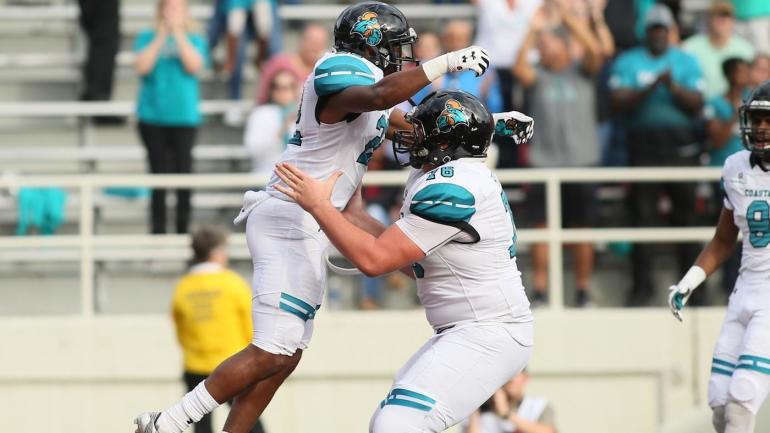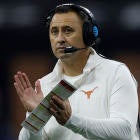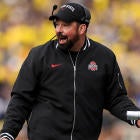
Brock Hoffman's road to immediate eligibility at Virginia Tech isn't closed yet.
The plight of the Hokies' offensive lineman resulted in the latest case of NCAA Twitter-shaming when Hoffman's application for a family hardship waiver was denied on Tuesday.
Virginia Tech filed the waiver based on the Hoffman's desire to be closer to his Statesville, North Carolina, home. His mother is still dealing with the after effects of surgery to remove a benign brain tumor.
It turns out Virginia Tech -- probably unwittingly -- filed a waiver request that didn't fit Hoffman's circumstance. We know that social media shaming has helped the NCAA find the right path in the past, but according to attorney Tom Mars, Hoffman would have been better off pursuing a standard waiver appeal to be eligible immediately at VT.
That would be the same avenue that recently got quarterbacks Shea Patterson (Michigan), Justin Fields (Ohio State) and Tate Martell (Miami) -- Patterson and Fields were both Mars' clients -- eligible immediately.
Mars, who has recently become a specialist in this area, told CBS Sports on Wednesday that he is consulting with the Hoffman family "about next steps in the waiver process."
"If I had a chance, I'd tell [Hoffman], 'This isn't game over for you, Brock,'" said Mars. "In three or four weeks, if Virginia Tech moves this forward on a separate track, he'll be granted a waiver."
Mars indicated Hoffman needs only to file a different transfer waiver appeal citing what the NCAA calls "documented mitigating circumstances that are outside the student-athlete's control."
The most obvious strategy would be to cite Coastal Carolina's coaching change as a mitigating circumstance, Mars said. Chanticleers coach Joe Moglia retired during the offseason. That strategy, utilizing Urban Meyer's retirement, was successful in getting Martell immediate clearance to transfer from Ohio State and play immediately for Miami.
"From what I know about Brock's family situation, I believe the NCAA would be far more willing to grant him a waiver under this exception to the year-in-residence requirement," Mars said.
The NCAA requires undergraduate transfers to sit out a year of competition at the new school for academic reasons. That so-called "year-in-residence" can be appealed for various reasons. Mars added it is not uncommon for a school to file two different waiver appeals if one is denied.
The approval rate for the standard waiver appeal by the NCAA in recent years is in the 65-75 percent range.
Mars indicated that the NCAA's hands were tied in this particular situation once Virginia Tech filed a family hardship waiver. Since 2012, the NCAA has required the destination of any athlete filing such a waiver to be within a 100-mile radius of the school.
Hoffman was told part of the reason the waiver application was denied is the family's Statesville home is 105 miles from Virginia Tech.
Social media reacted predictably. Hoffman posted pictures of what appear to be his mother with stitches in the side of her head. He said she is still suffering partial paralysis and hearing loss because of the tumor.
#HokieNation I NEED YOUR SUPPORT!! pic.twitter.com/LDOXy4vRMV
— Brock (@BrockHoffman76) April 23, 2019
However, this particular situation seems to be as much about Virginia Tech filing improper paperwork and lacking in its navigation of the rules as it is another NCAA blame game.
"The criticism of the NCAA in denying a medical waiver for Brock Hoffman reflects a misunderstanding of the NCAA rules," Mars said. "The standards for granting a medical waiver are entirely different than the standards in the 'mitigating circumstances' rule that allowed Shea Patterson, Justin Fields and Tate Martell to be eligible."
Hoffman was a two-year starter for Coastal Carolina.





















